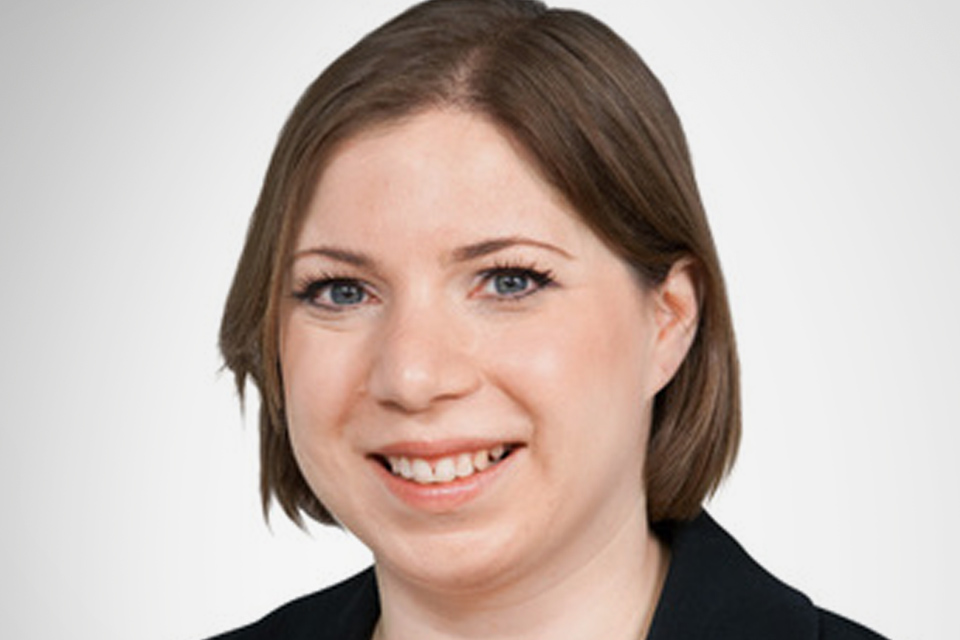Sarah Teather in 'Nursery World' on graduate funding for Early Years workforce
Children's Minister Sarah Teather announces continued funding for graduate programmes for the early years workforce in her column in 'Nursery World'.

A highly skilled early years workforce is critical if we are to combat inequality, help tackle poverty and improve the life chances of the most disadvantaged children. It’s simply not good enough that the highest early achievers from disadvantaged backgrounds are overtaken by more well-off, lower achieving children by the age of five.
That’s why I’m delighted to announce in my column this week that we will continue to invest funding in graduate programmes in the financial year 2011 to 2012, and the Children’s Workforce Development Council (CWDC) will continue to deliver both the early years professional status (EYPS) and the new leaders in early years (New Leaders) programmes.
There are now over 6,000 professionals with EYPS across the country and more than 4,000 currently in training. We know that graduate programmes are highly valued by those who have taken part, but also by the sector more widely. Indeed, a survey published this week by CWDC shows the EYPS programme helps to raise the status and confidence of graduate leaders who have achieved it.
Both EYPs and qualified teachers working in the sector play a crucial role in not only improving the achievement of children, but also sharing knowledge and helping to improve the skills of other members of staff. In addition, New Leaders, a two-year programme to achieve EYPS and an early years master’s degree, will recruit graduates from outside the sector with the capability to be outstanding leaders in early years settings. Bringing different skills and a fresh way of looking at things, these graduates will help raise the profile and status of those working in the sector.
Through these programmes, we’re committed to raising standards and improving the qualifications and skills of the workforce. But this shouldn’t be done through over-burdening or regulating the sector. This means moving away from the previous government’s target-driven approach and allowing local authorities to make decisions which reflect their communities’ needs.
As I’ve said before in these pages, the Department for Education secured a good spending review settlement for early years services against a difficult economic backdrop. The Early Intervention Grant brings together funding for Sure Start, youth and family support for the most vulnerable children and will give local authorities greater freedom and flexibility in designing local services. This includes the recruitment and deployment of graduate leaders and investment in other qualifications to support the wider workforce.
I do hope that local authorities will recognise the strong evidence for investing in a high-quality workforce when taking these decisions. The leading authorities are already planning how to target funding on areas and settings serving the children most likely to fall behind their peers at the age of 5.
As well as supporting the development of a graduate-led workforce, we also need to help Sure Start children’s centre leaders to continue to develop their skills. Sure Start children’s centres are central to delivering high-quality early years care and support. We want centre leaders to understand how they can use their resources most effectively to target families most in need, with programmes that are proven to work. Graham Allen’s review on early intervention, published last week, will help to inform this approach.
I’m really pleased that the National College will continue to support children’s centre leadership development - as set out in the Schools White Paper, ‘The Importance of Teaching’; including the highly successful National Professional Qualification in Integrated Centre Leadership (NPQICL) and Children’s Centre Leaders Network. I know there are some really powerful networks of children’s centre leaders being developed - providing a brilliant opportunity for leaders to hone their skills, share good practice and support each other.
I am also looking forward to receiving Dame Clare Tickell’s review of the early years foundation stage (EYFS) in the spring - which is likely to contain recommendations that will impact on the early years workforce. CWDC will work closely with my department to ensure that future training programmes, including the EYPS and New Leaders, reflect any changes resulting from this review.
There is a lot to feel confident about in the early years workforce. I hope the ongoing investment in graduate programmes, coupled with support for Sure Start centre leaders and local level investment, will help support a strong, graduate-led workforce into the future.